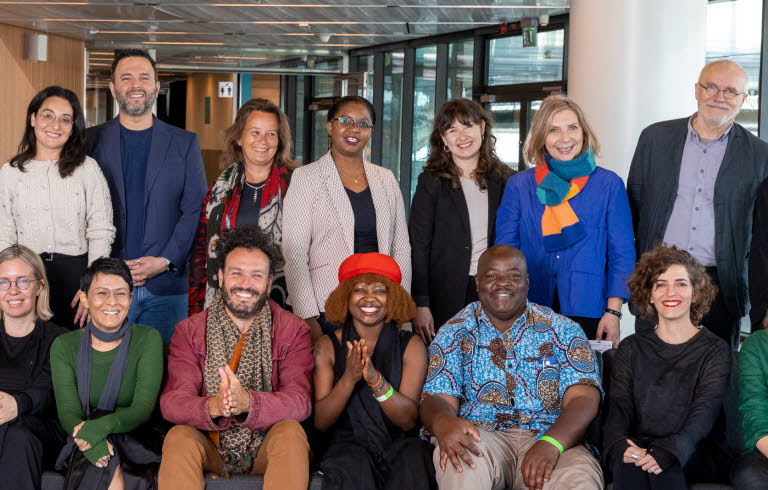New agreement with Sida strengthens artistic freedom
The Swedish Arts Council and the Swedish International Development Cooperation Agency (Sida) have signed an agreement for a second programme period between 2024-2027 to strengthen and protect artistic freedom globally. The programme allocates funds to international organisations working to protect and promote artistic freedom.
– At a time when democracy is in retreat, it is particularly important that artists and cultural operators can work without the risk of threats and reprisals. Continuing our cooperation with Sida means that more artists' lives, freedom and opportunities to express themselves are protected around the world, says Kajsa Ravin, Director General of the Swedish Arts Council.
Freedom of expression and artistic freedom are prerequisites for democratic and resilient societies. Today, artistic freedom is under increasing threat in many countries. Artists and cultural practitioners are often particularly vulnerable when democracy is challenged. The Swedish Arts Council is therefore working to strengthen artistic freedom internationally, including within the government's remit to promote safe havens in Sweden and as the national focal point for UNESCO's 2005 Convention, which interacts with the Programme for Artistic Freedom.
Today, the Programme for Artistic Freedom has 11 partner organisations working in different ways to promote artistic freedom globally. They strengthen and protect the freedom of expression of artists and cultural practitioners. The organisations drive processes of change, offer physical, financial and legal support to artists in need, and document and disseminate information and knowledge.
The first programme period between 2020 and the first half of 2024, also funded by Sida, has produced good results: in 2022 alone, 117 artists from the Global South were given access to safe havens, over 30 legal cases involving artists were handled by human rights lawyers, one case involving an artist was dealt with by the European Court of Human Rights, and over 600 cases of censorship, violations and harassment of artists were documented under the programme.



